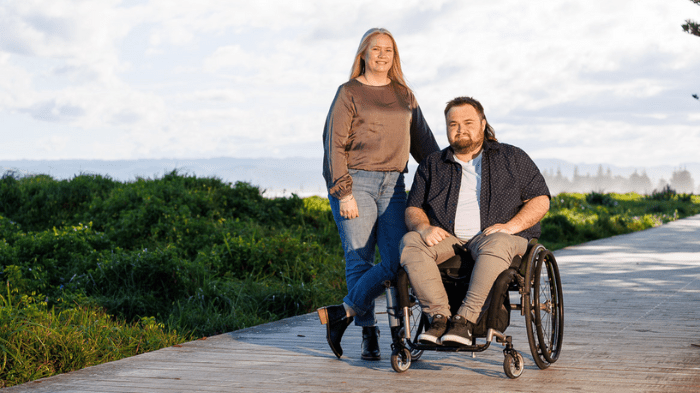
Funding boost pays off
Lana Reed makes dreams come true.
Part of the Pinnacle Tairāwhiti care coordinator’s job is to equip individuals with the tools they need to live healthy and fulfilling lives.
So, she puts that passion into the applications she submits on their behalf to various funding trusts and in six months she has secured nearly $160,000.
The list includes mobility scooters, aluminium doors, a heat pump, a bicycle, a SUV vehicle and horse float – all bought with grants.
Lana gathers every bit of support she can from general practitioners, suppliers, the patients themselves and others in her Gisborne-based comprehensive primary care interdisciplinary team, which includes clinicians.
“By working together we’re helping to make sure everyone in the community has access to the resources they need to achieve good health and independence.
“Overall, our goal is to help people be independent and self-manage their health conditions. We often work with patients who have been referred by their GP, but sometimes our team identifies a need themselves,” said Lana.
The patients love it.
One patient said having a heat pump and new aluminium doors – which provided better energy efficiency - was a game changer.
“It helps me to have a regular temperature to prevent hospitalisations due to my partial tetraplegia and not being able to feel if I am hot and cold,” he said.
A young girl was passionate about equestrian activities so Lana got her an SUV and horse float with money from the Lottery Grants Board and now she can take part in horse riding.
Another patient who now has a mobility scooter said: “I can now get everything done like my bloods, picking up medications and getting groceries instead of waiting for my family to take me. I am now responsible for my health.”
When a large and bright mobility scooter was dropped off at another patient’s place, she couldn’t believe it.
“My scooter is fast and easy to use, I can go to town and visit my friends, I can see my GP easier and park the scooter in the office.”
Independence was a common theme with another saying: “My scooter helps me to leave the house and do jobs that I normally have to rely on my daughter for.”
Lana’s work starts afresh every January when she and the team sit down to assess patients’ needs and then start working on funding applications.
“We share information about needs within the team, and we also work in patients' homes to get a better understanding of their situations.”
As an example, freestyle libre devices – which automatically measures and stores glucose readings – are usually funded by Work and Income for those who are working.
But if not, Lana and the team will go to a trust for funding. Last year, they successfully got money for a Dexcom continuous glucose monitor through a trust.
After 27 years with Kawhia Health Centre practice manager Heather Sherman is moving on, literally, in her (stunningly beautiful!) campervan with (equally stunning!) dog Jaxon by her side.
Read moreThe Clinical Informatics Award is back in its sixth year, promoting the value that clinicians bring to whānau and community in providing data and digitally enabled care. The 2024 award is open to anyone with a clinical background and an interest in clinical informatics: this can be an individual or a clinical team, so get nominating today!
Read moreThis new programme is a collaboration between Te Runanga o Kirikiriroa (Facilitation Service) and general practices.
View detailsThe Children's Act came into effect on 1 July 2015. Learn what is in a worker safety check, download resources to help with this and learn more about our police vetting service.